For Want of a Bird
What’s a bird photographer to do when there are no birds? Look for something interesting and attempt to photograph it well.
Your Calls?
Which two of today’s five featured images do you like best? Why for each? Which of the five is the most boring photo? I will share my answers here soon.
Today’s Lesson
When there are no birds to photograph at sunrise or sunset, look for something else to shoot.
What’s Up?
Today is Friday 20 December. Bob Eastman and I will be heading down to the lake at 6:45am despite the fact that the forecast is identical to yesterday’s: totally foggy with no sun until 10:00am. We’ve been photographing our favorite pair of cranes walking out of the marsh in the pre-dawn light. Yesterday I was at ISO 8000, 1/125 sec. at f/2.8. Other than that, we got nothing yesterday morning. Bob stayed in last night while I headed down to the lake at the last minute and got very lucky. Read to the end to find out how lucky I was. Whatever you choose to do, we hope that like us, you opt to be happy and have fun.
Please remember to use the B&H links that are found on most blog pages and to use the BIRDSASART discount code at checkout when purchasing your new gear from Bedfords to get 3% back on your credit card and enjoy free second-day air FedEx. Please, also, consider joining a BAA IPT. You will be amazed at how much you will learn!
If an item — a Delkin flash card, or a tripod head — for example, that is available from B&H and/or Bedfords, is also available in the BAA Online Store, it would be great, and greatly appreciated, if you would opt to purchase from us. We will match any price. Please remember also to use my B&H affiliate links or to earn 3% cash back at Bedfords by using the BIRDSASART discount code at checkout for your major gear purchases. Doing either often earns you free guides and/or discounts. And always earns my great appreciation.
Supporting My Efforts Here
If you enjoy and learn from the blog, are all set for gear, or live overseas, consider leaving a BAA Blog Thank You Gift here.
If you enjoy and learn from the blog, please consider using one of my affiliate links when purchasing new gear. It will never cost you a single penny. To support my effort here, please order from B&H by beginning your search here. Or, click here, to order from Bedfords and enter the discount code BIRDSASART at checkout to receive 3% cash back to your credit card and enjoy free Second-Day Air Fed-Ex shipping. It is always best to write for advice via e-mail.
In many cases, I can help you save some serious dollars. And/or prevent you from purchasing the wrong gear from the wrong shop.
Creedence Clearwater Revival – Bad Moon Rising (Royal Albert Hall, London/1970)
|
|
|
This image was created on 15 November 2024 from the South Jetty Parking lot July 2024 at Sebastian Inlet, FL. Standing at full height, I used the hand held Sony FE 300mm f/2.8 GM OSS lens (Sony E) with the Sony FE 1.4x Teleconverter and The One, the Sony a1 Mirrorless Camera. The exposure was determined using Zebra technology with ISO on the Thumb Dial. ISO 2000. 1/640 second at f/4 (wide open) in Manual Mode. AWB at 5:34:40pm well after sunset. RawDigger showed the raw file brightness to be perfect. Tracking: (upper right) Zone AF-C AF with Bird Face/Eye Detection enabled performed perfectly. Be sure to click on the image to enjoy an inexplicably sharper high-res version. Image #1: full moon rising |
Good Images are Where You See Them
Good Moon on the Rise
Bob Eastman had been planning to shoot the rising full moon for more than a week. He had scouted several different locations, most of them with the intent of including the end of the North Jetty in the frame. The moon rose at about 5:20pm into a hazy sky. It was not very impressive. We made a few images. They were not very impressive either. Ten minutes later, when we got back to my SUV, I happened to glance to my left, and saw the full moon nicely framed by a tall cabbage palm and other semi-tropical vegetation, I called out to Bob, “There’s the shot!”
We both grabbed a lens and went to work. With Sony Zebras, getting the exposure right was child’s play. After selecting my shutter speed, I dialed up the ISO until there were faint Zebra’s on the moon. That done, the key to the success of this image was the processing. I worked selectively on the color and brightness of the sky, the vegetation, and the moon. All as detailed in Digital Basics II and in the Digital Basics III Video Series.
If you would like to see exactly how I processed this image in Volume II of DB III, please shoot me an e-mail.
|
|
|
This image was created on 24 November 2024 down by the lake near my home at Indian Lake Estates, FL. Standing at full height, I used the jiggle blur technique with the hand held Sony FE 200-600mm f/5.6-6.3 G OSS lens (at 444mm) and The One, the Sony Alpha 1 Mirrorless digital camera. ) The exposure was determined via Zebra technology with Exposure Compensation on the thumb dial. Shutter Priority +1.0 stops. AUTO ISO set ISO 100: 1/3 sec. at f/25 (stopped down 3 full stops). AWB at 5:35:56pm on a then partly cloudy afternoon. RawDigger showed the exposure to be perfect. Tracking: Spot S AF-C with Bird Face/Eye Detection performed perfectly. Be sure to click on the image to enjoy an inexplicably sharper high-res version. Image #2: tree at sunset — jiggle/zoom blur |
Necessity is the Mother or Invention
In the Socratic dialogue Republic, Plato famously wrote: “our need will be the real creator. Over time this became the English proverb, Necessity is the mother of invention.
For a twist on that, check out the fascinating article Play is the Mother of Invention; Necessity is the Mother of Engineering by Peter Gray.
Anyhoo, when you have so little light that making a sharp image would require ISO 256,000, think blurs. I often teach that when trying to create new and different pleasing blurs, playing around is a great idea. Peter Gray would surely agree with that.
|
|
|
This image was created on 8 December 2024 down by the lake near my home at Indian Lake Estates, FL. Standing at full height, I used the hand held Sony FE 200-600mm f/5.6-6.3 G OSS lens (at 600mm) and The One, the Sony Alpha 1 Mirrorless digital camera. ) The exposure was determined via Zebra technology with Exposure Compensation on the thumb dial. Shutter Priority +0.7 stops. AUTO ISO set ISO 1000: 1/800 sec. at f/6.3 (wide open). AWB at 5:42:02 pm on a then cloudy morning. RawDigger showed the exposure to be perfect. Tracking: Spot S AF-C with Bird Face/Eye Detection performed perfectly. Be sure to click on the image to enjoy an inexplicably sharper high-res version. Image #3: strange cloud at sunset |
A Very Strange Cloud at Sunset
With few birds flying on the late afternoon of 8 December, Bob and I both enjoyed photographing a strange cloud in the western sky. Neither of us had ever seen anything remotely like it before.
|
|
|
This image was created on 12 December 2024 down by the lake near my home at Indian Lake Estates, FL. Standing on the South Peninsula I used the Robus RC-5570 Vantage Series 3 Carbon Fiber Tripod/Levered-Clamp FlexShooter Pro-mounted Sony FE 600mm f/4 GM OSS lens and The One, the Sony Alpha 1 Mirrorless digital camera. ISO 640. Exposure was determined via Zebras with ISO on the rear dial: 1/1600 sec. at f/11 (stopped down 3 stops). AWB at 7:11:36am on a clear morning with a bit of haze in the eastern sky. RawDigger showed the exposure to be perfect. Tracking: (left center) Zone/AF-C was active at the moment of exposure and performed perfectly. Be sure to click on the image to enjoy the inexplicably sharper high-res version. Image #4: dead and live pine trees at sunrise |
The Sunrise Spot
There are very few spots at Indian Lake Estates where you can take advantage of pre-dawn and sunrise color. This was the 2024 Bald Eagle nest tree. After Hurricane Milton took down this nest, the birds began re-building in the same tree. But when I got back from Sebastian Inlet, we discovered that they had moved across the canal and built a huge new nest in a live pine tree. Photographing the nest well is a 100% impossibility.
Most mornings, the vultures land in the dead tree when the oranges and yellow are most vivid. What’s a guy to do when the birds do not show up?
|
|
|
This image was created on 18 December 2024 down by the lake near my home at Indian Lake Estates, FL. Standing at full height, I used the hand held Sony FE 200-600mm f/5.6-6.3 G OSS lens (at 594mm) and The One, the Sony Alpha 1 Mirrorless digital camera. ) ISO 640. Exposure was determined via Zebras with ISO on the rear dial: 1/800 sec. at f/6.3 (wide open). AWB at 5:33:38pm just after the sun dropped below the horizon. RawDigger showed the exposure to be perfect. Tracking: Expand Spot AF-C was active at the moment of exposure and performed perfectly. Be sure to click on the image to enjoy the inexplicably sharper larger version. Image #5: Bob Eastman’s Pine Perch at sunset |
A Very Creative Perch
Bob had grabbed a very attractive pine tree perch and erected it at the south end of the South Marsh. Bob put up this perch about two weeks ago. As he was walking back to his truck, a Great Egret landed on it. On the morning of 16 December, I photographed a Turkey Vulture on Bob’s Pine Perch in pre-dawn light. I will share that one with you here at some point.
The perch is so pretty that on Wednesday evening, I photographed it against some lovely sunset color. Ah, for want of a bird.
So last night, Bob opted to stay in. I ran down to the lake about 15 minutes before sunset. There was nothing on The Perch II. Nothing on Bob’s small perch. And there was nothing on The Perch III. As I approached Bob’s Pine Perch in my SUV, there were three Turkey Vultures sitting on it. One flew off. The color was getting sweeter by the minute. Needing to get lower, I grabbed the 200-600 G lens, exited the vehicle, and went to work in Shutter Priority with EC on the Thumb Dial. Then I enjoyed a miracle or two when a second vulture took flight and then returned to land on the perch, wings outstretched.
When I showed Bob some of the images on the back of the camera, he said dejectedly, Oh, no!
Typos
With all blog posts, feel free to e-mail or to leave a comment regarding any typos or errors.

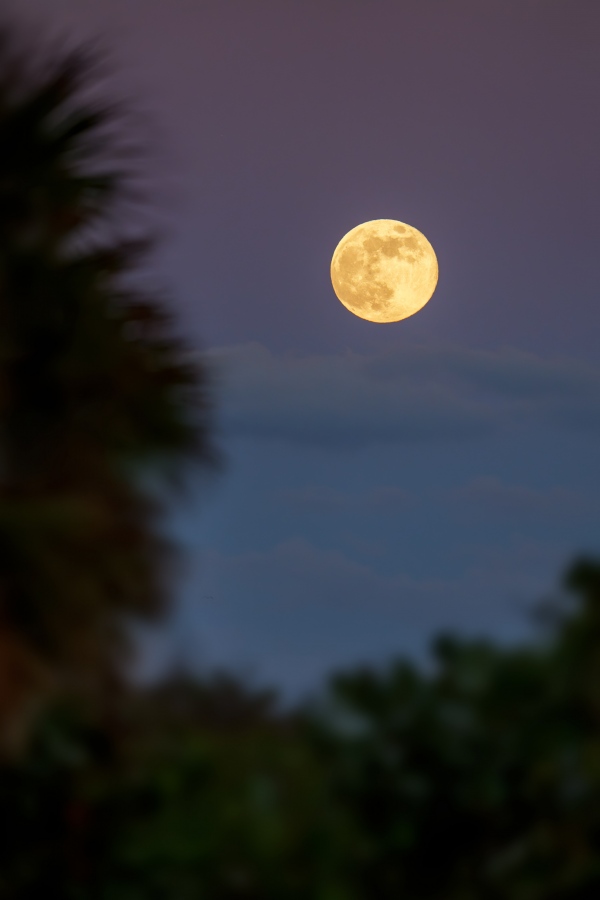
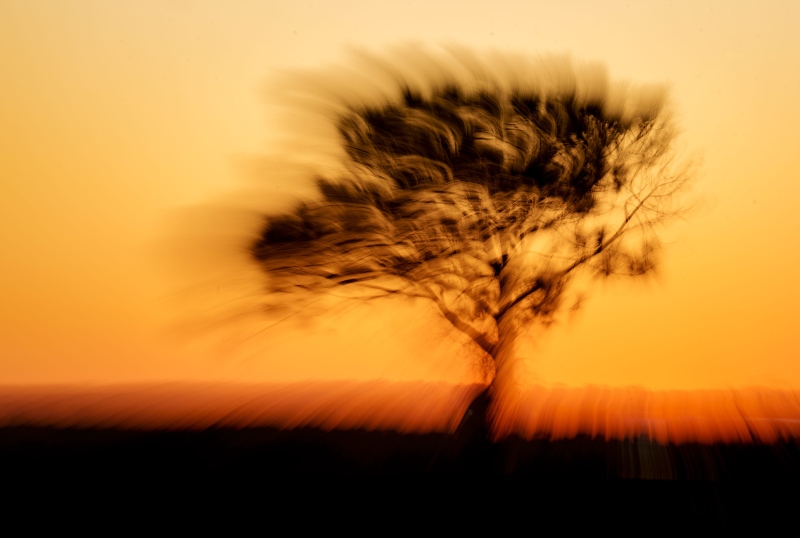
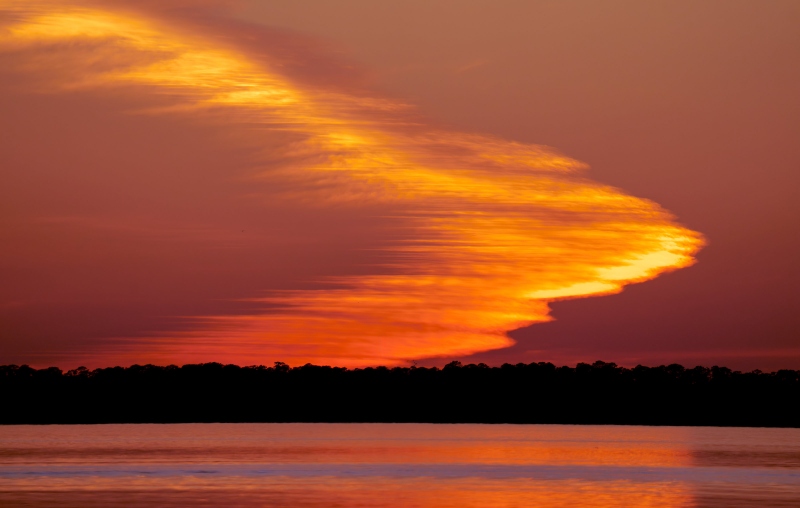
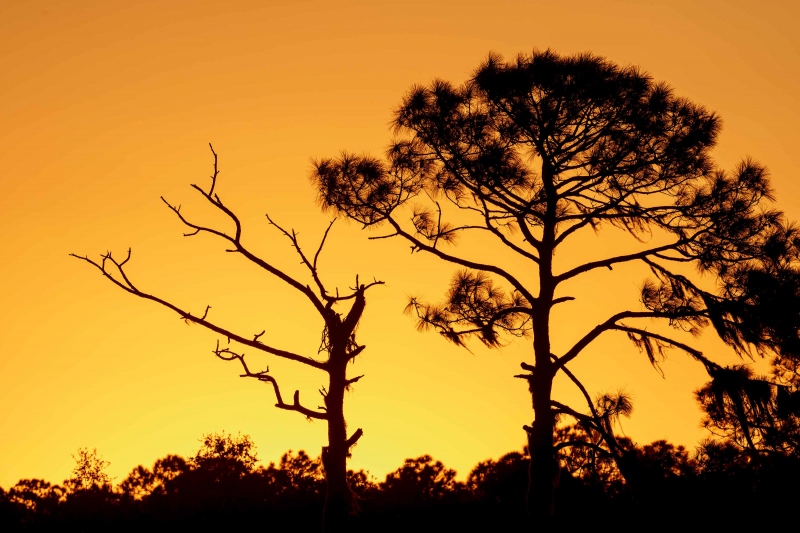
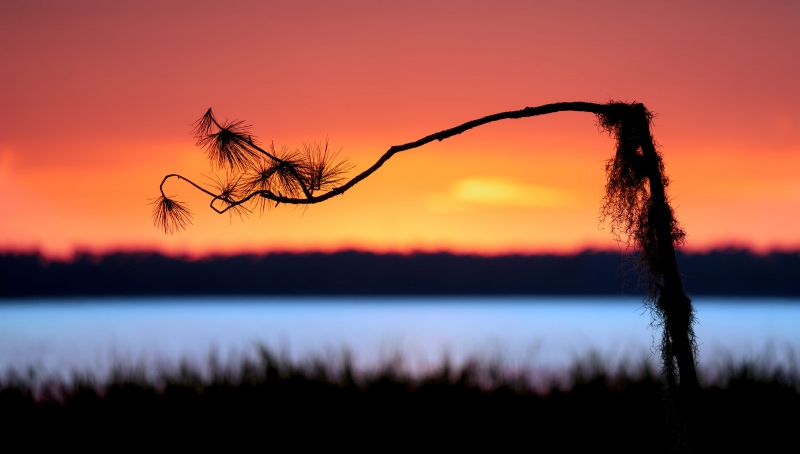









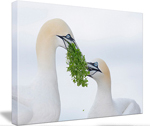



I love the color in #5– just like looking at it. The moon also gets a thumbs up.
Now a question: In the 3rd paragraph under a “Very Creative Perch” you note that for subsequent blog post you used shutter priority with ISO on thumb dial. As you usually seem to have shutter priority coupled with exposure comp on the thumb dial I wondered if this was a typo?
Hey Wells, Thanks, and good catch. My brain typo is now fixed thanks to you.
with love, artie
I agree with Pat.
I like images 3 and 5 for their color, composition, interesting skies, and water.
Art: I like #1, the full moon best. Why: (1) features on the moon, (2) faint clouds, (3) “framing” on sides/bottom. I also like #3, the strange cloud — because it’s unusual. None of then are boring, but I really don’t like #2, tree at sunset (you know how I feel about blurs and the “jiggle” on this once creates such tension that it sets my teeth on edge!).
These are all very nice Artie. Great post too!
Thanks KG!
a